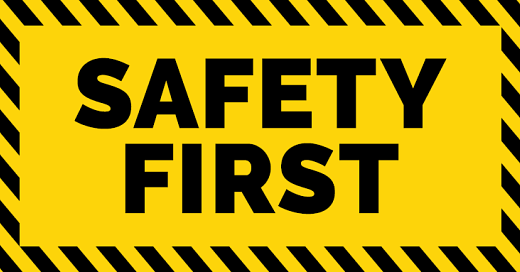On the one hand, our State Department says it’s dangerous to go to Honduras and Nicaragua:
“Reconsider travel to Nicaragua due to arbitrary enforcement of laws, the risk of wrongful detention, and limited healthcare availability. Exercise increased caution in Nicaragua due to crime. … The Government of Nicaragua targets individuals and organizations for political purposes. … In the past year, the Government of Nicaragua has subjected U.S. citizens to arbitrary entry and exit bans, expulsions, arrests, revocations of Nicaraguan citizenship, and other actions. … The Government of Nicaragua may:
Arbitrarily deny entry or re-entry to Nicaragua or departure from Nicaragua to U.S. citizens and Nicaraguan citizens. This includes entry by air or land. Travel refunds are NOT provided in these cases. Denials and exit bans can occur for political reasons. This includes perceived support for or association with those the government disfavors. The government is not required to provide a basis for its denial.
Search personal phones, computers, social media accounts, and documents for anti-government content.
Limit photography.
Seize personal devices.
Target individuals for political reasons, regardless of nationality. These can include former allies, political activists, business representatives, religious and charity groups, clergy, missionaries, human rights advocates, civil society leaders, academics, and journalists.
Target pro-democracy advocates and their family members.
Confiscate privately-owned land, residences, financial assets, or personal property. They may do this without warning or due process.
Arbitrarily detain, accuse, and charge individuals with terrorism, money laundering, or organized crime offenses. They may do this without fair or transparent processes. … [There’s more, but you get the idea.]” - State Department Travel Advisory.
“Reconsider travel to Honduras due to crime. … Violent crime, such as homicide, armed robbery, and kidnapping, remains common. Violent gang activity, such as extortion, violent street crime, rape, narcotics, and human trafficking, is widespread. Local authorities may lack sufficient resources to respond effectively to serious crime incidents. Around resort areas in the Bay Islands, which include Roatan, Utila, and Guanaja, there is a concentration of resources, and these areas are better policed. Demonstrations occur regularly throughout the country and can be about a variety of political or economic issues. Protests, demonstrations, tire burnings, and roadblocks are frequent, unpredictable, and can turn violent. They can shutdown roads and highways, often without prior notice or estimated reopening timelines. In December 2022, the Government of Honduras declared a “State of Exception” in response to high levels of extortion and other crimes. The declaration remains in effect and has been modified to include more cities. It allows the police to suspend constitutional rights in 226 of the country’s 298 municipalities. … [Again, there’s more, but you get the idea.]” - State Department Travel Advisory.
On the other hand, ICE Barbie (dba DHS Sec. Kristi Noem) has officially determined that it Nicaraguans and Hondurans “can return home in safety.” So safe that she is terminating Temporary Protected Status for nationals of both countries, effective 60 days from tomorrow. You can read her announcements here and here.
KANSAS CITY, NOT SAFE:
“In Kansas City, most immigrants facing deportation receive no legal counsel;
Limited legal help for some immigrants, including unaccompanied children, is being targeted for termination by the Trump administration. … “It’s like a system that is completely stacked against immigrants,” said Clare Murphy Shaw, executive director of the Asylum Clinic Kansas City, which primarily focuses on pro bono help for immigrant children who entered the U.S. without parents or guardians. Only 23.4% of immigrants, including unaccompanied children, had an attorney with them when they were ordered to be removed from the country in May 2025, according to government data compiled by the Transactional Records Access Clearinghouse. Legal experts fear even those percentages will drop as programs focused on assisting vulnerable populations, like children, struggle to maintain funding under the Trump administration. … [Former Immigration Judge] Tabaddor is among those voices highly critical of the new approach by Homeland Security and ICE. She contends that the Trump administration is attempting to bypass the role of immigration courts, creating situations where there is “no judge, no hearing and virtually no review.” “As a former judge, I can tell you when one part of the framework breaks, when judges are undermined, when legal support disappears, when people are too afraid to show up, the entire system fails,” she said. “Not just for immigrants, but for all.” - Mary Sanchez, The Beacon, July 3, 2025.
TRUMPISM SHRINKS LABOR FORCE:
“The Trump administration’s actions have harmed employers desperate for workers. “I have healthcare systems for clients that have a dire need for nurses and are forced to wait two or more years for a nurse through the green card process,” according to Colleen F. Molner of the Garfinkel Immigration Law Firm. “On top of that, many of them have been faced with the revocation of work authorization from the humanitarian parole termination for Cubans, Haitians, Nicaraguans and Venezuelans.” In 2024, 99,000 Haitians were working in healthcare occupations in the United States, including 28,000 non-citizens, according to NFAP estimates of the Current Population Survey monthly public use files. “I represent hospitals in New Jersey, and the termination of parole programs is visibly exacerbating the already serious labor shortage problem in healthcare,” said Rosanna M. Fox of Lepore Taylor Fox LLP. With the termination of CHNV parole and TPS for Venezuelans, and with the uncertainty facing other parole programs, healthcare organizations are scrambling for ways to replace workers who lost work authorization in an already tight market and on very short notice.” She said hospitals across the country have struggled to find nurses, nurse’s aides, environmental services workers and other staff critical to providing medical care to Americans.” - Stuart Anderson, Forbes, July 6, 2025.
That’s all for today. Comments always welcome. THANK YOU! to all subscribers, free and paid.
Eat your Wheaties.
***






